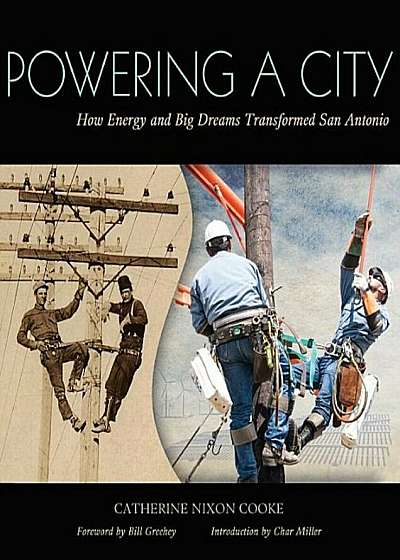
Powering a City: How Energy and Big Dreams Transformed San Antonio, Paperback
Descriere
At the center of San Antonio's growth from a small pioneering town to a major western metropolis sits CPS Energy, the largest municipally owned energy utility in the United States and an innovator in harnessing, conserving, and capitalizing on natural energy resources. The story of modern energy in San Antonio begins in 1860, when the San Antonio Gas Company started manufacturing gas for streetlights in a small plant on San Pedro Creek, using tree resin that arrived by oxcart. The company grew from a dark, dusty frontier town with more saloons than grocery stores to a bustling crossroads to the West and, ultimately, a twentieth-first-century American city. Innovative city leaders purchased the utility from a New York-based holding company in 1942, and CPS Energy as we know it today was born. In Powering the City, Catherine Nixon Cooke discusses the rise and fall of big holding companies, the impact of the Great Depression and World War II--when 25 percent of the company's workforce enlisted in the armed forces--on the city's energy supply, and the emergence of nuclear energy and a nationally acclaimed model for harnessing solar and wind energy. Known and relatively unknown events are recounted, including Samuel Insull's move to Europe after his empire crashed in 1929; President Franklin Roosevelt's Public Utility Holding Company Act of 1935, which made it possible for the city to purchase the San Antonio Public Service Company; the city's competition with the Guadalupe Blanco River Authority, whose champion was Congressman Lyndon Johnson, in which the city emerged victorious in a deal that today returns billions in financial benefit; legal wranglings such as one that led to the establishment of Valero Energy Corporation; and energy's role in the Southwest Research Institute and the South Texas Medical Center, Hemis Fair 1968, Sea World, Fiesta Texas, and Morgan's Wonderland. Images from CPS's archive of historic photographs, some dating as far back as the early 1900s





